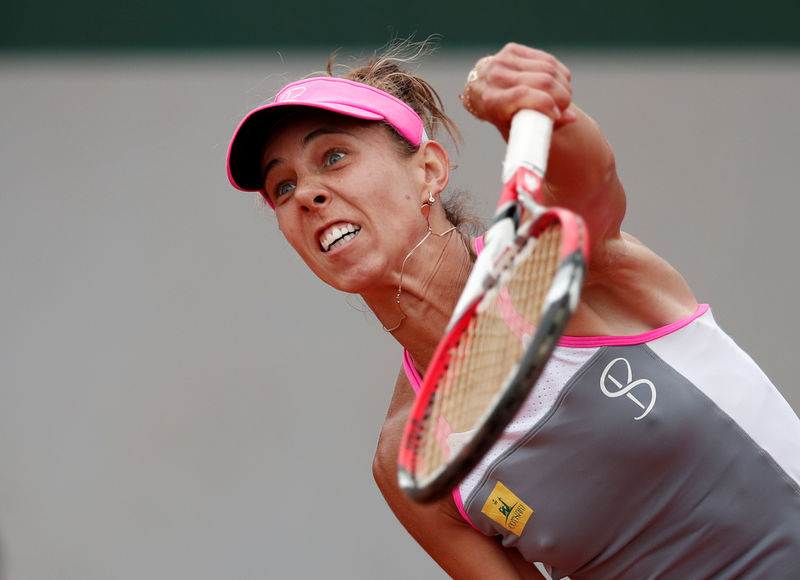By Martyn Herman
PARIS (Reuters) - There is barely half a page devoted to Romanian Mihaela Buzarnescu in the WTA's media guide but this week at the French Open she is writing a whole new chapter in her career.
The 30-year-old reached the last 16 on Friday with a 6-3 7-5 defeat of Ukrainian fourth seed Elina Svitolina -- the biggest win of a career spent in the tennis wilderness.
Until this week the number 31 seed had contested only two Grand Slam matches, losing both.
Now she has three wins under her belt and is yet to drop a set. Not bad considering a year ago she was ranked 377.
Her fourth-round opponent Madison Keys admits she has not seen Buzarnescu play before but her rapid rise to 33rd in the rankings is not a surprise to everyone.
Australian Open champion Caroline Wozniacki, who beat Buzarnescu on the way to the title in Melbourne, said she remembers her from their junior days.
"I have known her for 15 years. She was always a great player but got a lot of injuries then and had to fight her way back," the Dane, who is also in the last 16, said.
"I always knew that she had the level and (it) was just a matter of time before her ranking went up."
Incredibly Buzarnescu only made her main draw debut on the WTA Tour last year, falling in the first round in Luxembourg.
She ended 2017 in the top 100, however, after a semi-final run in Linz and her upwards trajectory has continued this year with runners-up spots in Hobart and Prague.
KNEE SURGERY
So where has she been before, one might ask?
"I did have had two surgeries on my knee, and I didn't play for two-and-a-half years, and two years, and then started again, and then stopped for six months, freezing my ranking," she told reporters scrambling for background on her on Friday.
"So last year I had not a good start, of course, with pain again, and it was really, really tough."
When she was unable to play tennis because of her knee injuries, Buzarnescu decided to study Sports Science.
"When I had the first surgery before I stopped, I said that I didn't know exactly how it will be with the surgery, how it will be (with) the rehab, and if it will be good," she said.
"So that's when I started the Ph.D. And then it was three years, because I didn't play for two or three years. I finished it in 2016 when I was playing again.
"I'm happy that I did it. My father also did it. I knew if I was not going to play tennis, maybe it would help me on my resume to have a job somewhere in Romania or abroad."
For the time being she can put that career path on hold as she contemplates the possibility of a match against U.S. Open runner-up Madison Keys.

"She's a really great player with an aggressive game and good shots," she said. "But, you know, I'm just going to play my own game and just go on the court like a normal match."